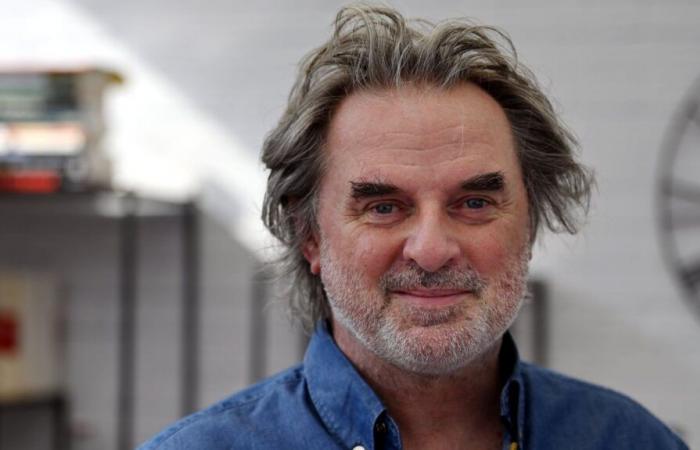Jean-Christophe Grangé has been one of the most widely read French thriller authors for over 30 years and the release of around twenty novels. It occupies a special place in the dark universe, sordid stories and Machiavellian choices. Most of his novels, including the famous The Purple Riverswas adapted for the cinema. Today, he publishes two new novels: Sans soleil, tome 1 : Disco Inferno et Sans soleil, volume 2: The King of Shadowsat Albin Michel. Two volumes for a single killer with what must have seemed like a party, during which people dance, turns into a frantic, exhilarating, sometimes unbearable hunt, led masterfully by an assassin who likes to carve up his victims.
franceinfo: The more you advance, the more you seem to want to confront us with ourselves, because this fascination with evil concerns us. Is this what you wanted to do?
Jean-Christophe Grange: In any case, I always try to tell a sort of journey back to the origins of evil or to the source in my mind. A police investigation is always a hunter in a forest and I like this idea of going back to the source of a river. In the first volume, we are in Paris, in the second volume, we are really going to travel to Africa, to Haiti and there, we really have the feeling that the investigators are tracing a thread and that this thread will take us to the origins of the evil which are often linked to trauma and stories that took place before the crimes. That’s why I always say that a detective novel is still a backwards story. The crime is the end of the story and we will little by little go back to the motive and to the assassin and his traumas which drove him crazy.
You have the impression that you are always diving, a bit like someone who is afraid of the bottom and who goes to the bottom to tame what inhabits him and his demons. Does writing help you alleviate that, make you feel better?
I tend to always say that books aren’t the answer, they’re the question. You are haunted by a question, by something that you can’t stand and there is sometimes a misunderstanding about my books. People think I’m complacent about violence or that I enjoy it, but it’s quite the opposite. You always write about what you can’t stand, what you have a problem with. I remember the first images I saw of the Biafran wars or Night and Fog and it didn’t pass.
“Quite naturally when you write, what comes out are the things that you can’t stand and that you want to question.”
Jean-Christophe Grangeat franceinfo
It’s like when you scratch a wound a little, it has to bleed.
All these characters who are your heroes, they still take care of people who are on the margins, people who are different and we feel that that is a real subject for you?
As you get older, you realize that the differences actually become smaller. What seemed very far away is actually quite close. I was interested in describing the homosexual community of that time, which I knew a little about because I was between 17 and 18 years old at that time and I myself was trying to fit into these spectacular boxes with extraordinary music, it was the rise of disco. I always look for particular contexts, specific communities in which readers will travel.
Aren’t you a bit of an outsider after all?
Completely marginal, completely off the mark! But always. I was lucky enough to succeed in my literary writing, but I think about it often and a lot of artists think about it. If I hadn’t succeeded, I wonder where I would be because I really didn’t fit well into the boxes that were offered to me at the beginning when I left my studies. Fortunately, with will and determination, I managed to write my books. But I am totally marginal.
“I think I’m completely normal, but everyone tells me I’m half crazy all the same.”
Jean-Christophe Grangeat franceinfo
Aren’t these two volumes ultimately an ode to life, to show that light can counteract darkness?
Always. Often, it has been said that my books are pessimistic, very dark books. If you look at them closely, this is not true. Good always wins and it is always the knight who manages to defeat the dragon. That’s the optimist. There are two optimists, first, good always wins, often in very dark conditions, but it wins. The other optimism, a little paradoxical, is that we always discover that the assassin, the bad guy, had personal reasons for becoming bad, that is to say traumas which broke him and which changed it. Behind this idea, there is this optimistic idea that if we don’t break you, if we raise you with love, well, there is no reason. The one thing all serial killers share is a disastrous childhood. Not all unloved children become killers, but all killers are unloved children. I have this rather banal idea which, I believe, is universal, which is that it is during childhood when you must be nourished with love and balance. It keeps you from slipping into the black hole of evil and that’s kind of my philosophy.






